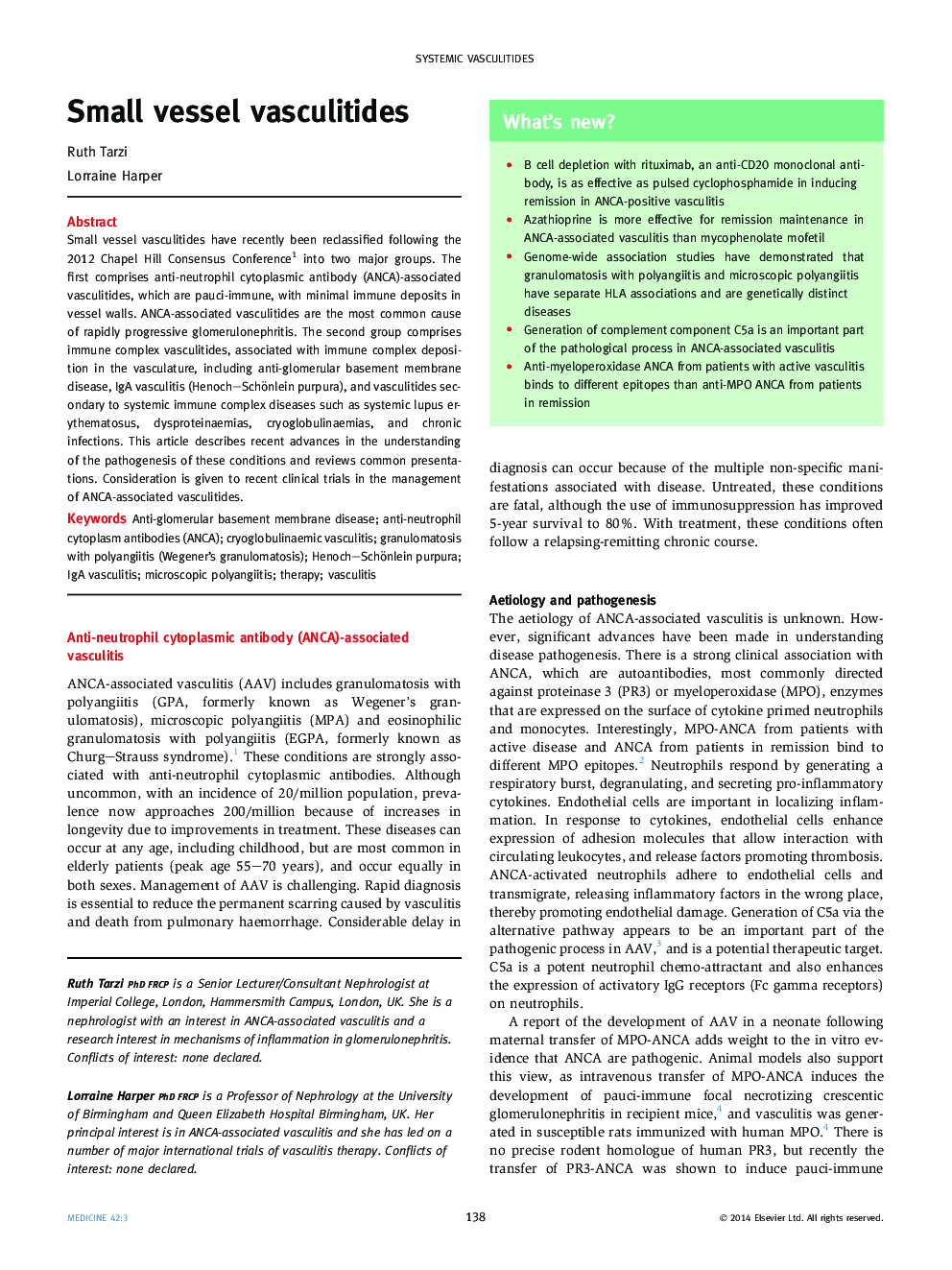| Article ID | Journal | Published Year | Pages | File Type |
|---|---|---|---|---|
| 3804756 | Medicine | 2014 | 8 Pages |
Abstract
Small vessel vasculitides have recently been reclassified following the 2012 Chapel Hill Consensus Conference1 into two major groups. The first comprises anti-neutrophil cytoplasmic antibody (ANCA)-associated vasculitides, which are pauci-immune, with minimal immune deposits in vessel walls. ANCA-associated vasculitides are the most common cause of rapidly progressive glomerulonephritis. The second group comprises immune complex vasculitides, associated with immune complex deposition in the vasculature, including anti-glomerular basement membrane disease, IgA vasculitis (Henoch-Schönlein purpura), and vasculitides secondary to systemic immune complex diseases such as systemic lupus erythematosus, dysproteinaemias, cryoglobulinaemias, and chronic infections. This article describes recent advances in the understanding of the pathogenesis of these conditions and reviews common presentations. Consideration is given to recent clinical trials in the management of ANCA-associated vasculitides.
Keywords
Related Topics
Health Sciences
Medicine and Dentistry
Medicine and Dentistry (General)
Authors
Ruth Tarzi, Lorraine Harper,
